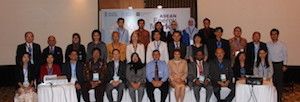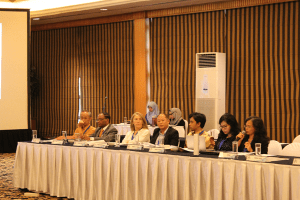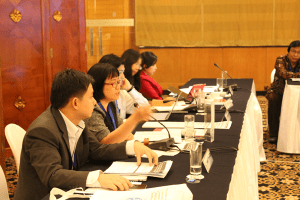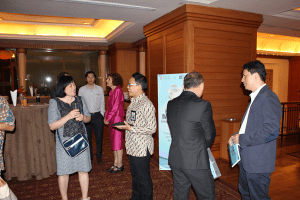Energy poverty and small-scale renewable energy
3-4 June, 2015
Hotel Aryaduta, Jakarta(held under the Chatham House Rule)
Objectives
The objective was to develop relevant policy recommendations on eradicating energy poverty and improving access to electricity, with the focus on the ASEAN Power Grid and renewable energy (both on and off-grid). The forum was convened to agree an analytical approach and division of labour to deliver this work. Field surveys will be undertaken in a number of locations across ASEAN, and a follow-up forum will be convened (in 2016 or 2017) to examine the results, draw conclusions and identify steps for moving forward.
Outcomes
Participants unanimously agreed on the importance of:
- Securing project sustainability for renewable energy, giving special attention to support at the community level, project ownership, appropriate training and full technology transfer;
- The challenge of designing proper approaches to economic viability of small-scale renewable energy sources, which could require connecting to the grid (where feasible), and involving the private sector without compromising the primary objectives of securing access to electricity on an affordable basis by poor households and micro enterprises;
- The necessity for further developing the business case for renewable energy sources and their importance in meeting increasing ASEAN energy demand on a sustainable basis;
- The damaging effects from the multiplicity of financing sources, with no cohesive standards and often competition in a predatory manner, thereby undermining the stated objectives of providing access to sustainable and affordable energy in remote areas.
Participants further agreed on a survey methodology for evaluating of the welfare impact from the introduction of renewable energy, and recommended:
- The inclusion of short-term indicators likely to affect the welfare impact (education, income and health) in the longer term;
- The development of indicators for project sustainability, to assess the lasting impact from the introduction of renewable energy;
- The development of the environmental component, as part of the impact analysis, either on a stand-alone basis or as part of the sustainability analysis;
- The introduction of the gender perspective through specific questions geared towards activities typically conducted by women;
- The inclusion of questions related to affordability of renewable energy, in the rural context, as an important indicator of beneficiaries’ preferences;
- Assessing the impact of access to renewable energy on connectivity of poor remote communities, and their inclusion in economic activities.
Forum papers
- Overview
- Concept Note
- Agenda
- Participants List
- Biographical Notes
- Conclusions and Forum Statement
- Forum Proceedings
- Photo Gallery




